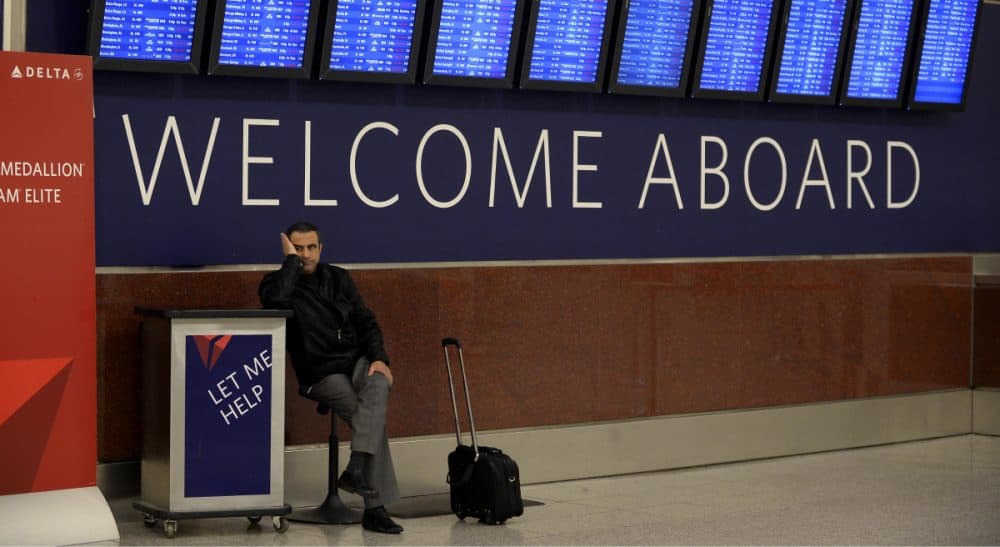Advertisement
The Misery Of Air Travel And What We Can Do About It

As the busy summer flying season begins, it is time to demand that the airlines demonstrate greater transparency in their practices and that passengers demand less misery in their flying experience. An industry that impacts millions of people each day should be held accountable for practices that are both deceptive and disruptive of business and personal planning.
On a regular basis, air travelers face inexplicable delays, over-booked flights, lost luggage, long waits on the tarmac, cabins that are too hot in one half and too cold in the other and diminished service at every stage of the process. Pricing is incomprehensible. It is likely that few of the crammed passengers have paid the same fare. How is it that an aircraft full of people going to the same place at the same time can have such wildly differing airfares? Their only commonality seems to be the discomfort of the experience.
An industry that impacts millions of people each day should be held accountable for practices that are both deceptive and disruptive of business and personal planning.
Up-charges offer perverse incentives. For example, airlines charge extra if you want to sit closer to the front, touting the benefits of a faster exit. Do they miss the irony that the passengers’ experience is so unpleasant that people feel compelled to pay extra to shave mere minutes off how long they are in the aircraft? Early boarding and extra legroom fees are now common practice, ensuring greater discomfort for those who cannot afford the increased costs of barely humane legroom.
Baggage fees are the reverse of what a properly incentivized system should promote. Travelers seeking to avoid these costs hog overhead bin space, increasing the time it takes to board, while terrifying those who are trying to avoid swinging backpacks and poorly aimed hoists of heavy roller bags. If passengers were charged for carrying suitcases onto the plane, they would check them to avoid the fees. Boarding would be faster, and there would be room for carry-ons in close proximity to one’s seat.
As passenger frustration increases, ground agents and flight attendants are prohibited by policy from exercising judgment in trying to help passengers. Where, in the past, gate and counter agents could exercise some discretion in waiving stand-by fees or otherwise use their judgment to solve a problem and deliver customer service, today’s ground agents seem trained only in how to apologize for not being able to solve a problem outside the strict confines of a computer system designed to maximize airline profit at passenger expense.
Until implementation of the 1978 Airline Deregulation Act, airlines were a regulated industry, subject to Congressional scrutiny and agency oversight. Today, this vitally important industry is run by algorithms and managed with indifference. And because of air travel’s vital role in our increasingly mobile lives, we are forced to endure a level of incompetence that would long ago have put any other similarly run industry out of business.
Air travelers are fast approaching the apocryphal “I’m mad as hell and I’m not going to take this anymore” moment. With millions of passengers traveling daily, perhaps it is time to exercise some old-fashioned collective action to force accountability into an industry that that currently has none.
Airlines are clearly adept at developing their own internal metrics for how few planes can take the most people, how many passengers can be stuffed into an aircraft, what fluctuating rate to charge, and fees for absolutely any justifiable activity, including sitting — but the numbers are hidden, preventing any accountability to the flying public.
With millions of passengers traveling daily, perhaps it is time to exercise some old-fashioned collective action to force accountability into an industry that that currently has none.
As a mere starting point, every airline should be required to disclose annual information that would provide through numbers what travelers experience, for example:
1. How many passengers delayed by the airline (e.g., due to flight delays or cancellations) cannot be rebooked until the following day, or longer, because the airlines have no room to accommodate them in their already over-booked aircraft?
2. How many different fares were paid by passengers taking the same flight? How were they determined?
3. How much revenue do the airlines collect from harried passengers seeking to avoid extra hours at the airport by, for example, charging fees for last minute flight changes (including stand-by charges), even when the requested change is due to flight delays?
Travelers deserve transparency in an industry upon which they are dependent. They also deserve an alignment between airline rules, incentives and rationality. Transparent metrics offer a critical first step towards proving the irrationality of the current state of air travel. Excessive fees, delays, long lines, flaring tempers and powerless employees are the outward manifestation of either airline incompetence or disdain for their passengers, or worse, both.
There is a world of difference between what air travelers have come to expect and what they should accept.
Lauren Stiller Rikleen’s newly released book is “You Raised Us — Now Work With Us: Millennials, Career Success, and Building Strong Workplace Teams.”
Related: